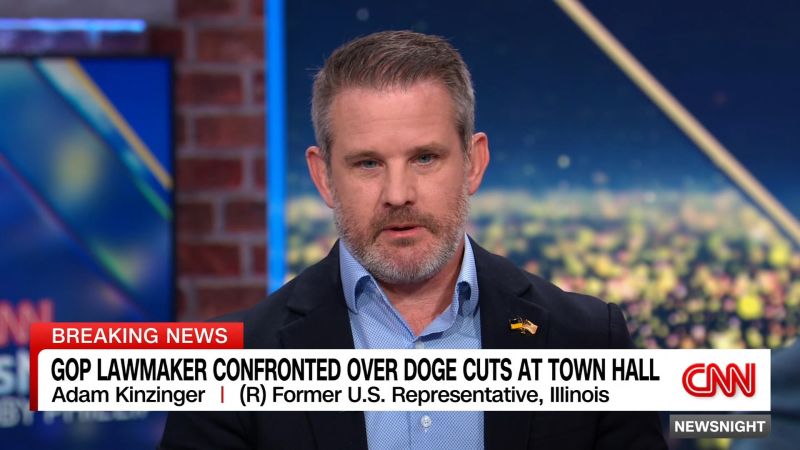Politics
2025-04-26 03:23:35
Content

In a bold legal move, Washington State's Attorney General has taken action against Adams County Sheriff Dale Wagner, alleging violations of the state's landmark 2019 sanctuary law. The lawsuit highlights tensions between local law enforcement practices and state-mandated policies designed to protect immigrant communities.
The legal challenge centers on Sheriff Wagner's alleged failure to comply with the sanctuary law, which restricts local law enforcement from using resources to enforce federal immigration detainers or cooperate extensively with federal immigration authorities. By challenging the sheriff's practices, the Attorney General's office aims to ensure that local agencies adhere to the state's protective guidelines for vulnerable immigrant populations.
This legal confrontation underscores the ongoing debate about the role of local law enforcement in immigration enforcement and the delicate balance between community safety and immigration policy. The lawsuit serves as a critical test of the sanctuary law's implementation and the state's commitment to protecting the rights of all residents, regardless of their immigration status.
Legal Showdown: Washington's Sanctuary Law Sparks Intense Confrontation with County Sheriff
In a dramatic legal battle unfolding across Washington state, the intersection of local law enforcement and state-mandated sanctuary policies has erupted into a high-stakes confrontation that threatens to reshape the landscape of immigration enforcement and local governance.
When Legal Boundaries Collide: A Provocative Challenge to State Sanctuary Regulations
The Legal Framework of Sanctuary Policies
Washington's 2019 sanctuary law represents a pivotal moment in state-level immigration policy, designed to create clear boundaries between local law enforcement and federal immigration authorities. This groundbreaking legislation fundamentally restricts local law enforcement agencies from using resources or personnel to enforce federal immigration detainers or participate in immigration enforcement activities beyond their standard jurisdictional responsibilities.
The law emerged from a complex political landscape where communities sought to protect vulnerable populations and ensure that local law enforcement could maintain trust with diverse community members. By preventing local agencies from acting as de facto federal immigration agents, the legislation aimed to encourage immigrant communities to report crimes and cooperate with local authorities without fear of deportation.
The Confrontation with Adams County Sheriff
The Washington State Attorney General's decision to sue Adams County Sheriff Dale Wagner represents a critical test of the sanctuary law's enforcement mechanisms. This legal action signals the state's commitment to ensuring strict compliance with the 2019 legislation, highlighting the potential consequences for local law enforcement agencies that deviate from prescribed guidelines.
Sheriff Wagner's alleged violations suggest a potential systematic disregard for state-mandated restrictions on immigration enforcement cooperation. The lawsuit potentially exposes deeper tensions between local law enforcement autonomy and state-level policy directives, raising fundamental questions about jurisdictional boundaries and legal interpretation.
Implications for Local Law Enforcement and Immigration Policy
The legal confrontation extends far beyond a simple dispute between state authorities and a county sheriff. It represents a microcosm of the broader national debate surrounding immigration enforcement, local governance, and the delicate balance between federal and state-level responsibilities.
By pursuing this lawsuit, the Washington Attorney General's office is sending a clear message about the enforceability of sanctuary policies. The case could potentially establish precedential legal standards for how similar laws are interpreted and implemented across different jurisdictions, making it a landmark moment in state-level immigration policy.
Community and Political Ramifications
The lawsuit's outcome could have profound implications for immigrant communities, local law enforcement practices, and the broader political discourse around immigration. It challenges existing power structures and demands a nuanced understanding of how legal frameworks interact with community safety and civil liberties.
Immigrant advocacy groups are closely watching the proceedings, recognizing that this case could set significant precedents for protecting vulnerable populations and maintaining trust between law enforcement and diverse community members. The legal battle represents more than a technical dispute—it is a fundamental examination of how democratic societies balance security, legal compliance, and human rights.
Politics

2025-03-21 15:21:00
Politics

2025-03-31 22:45:21
Politics

2025-03-08 21:06:43









